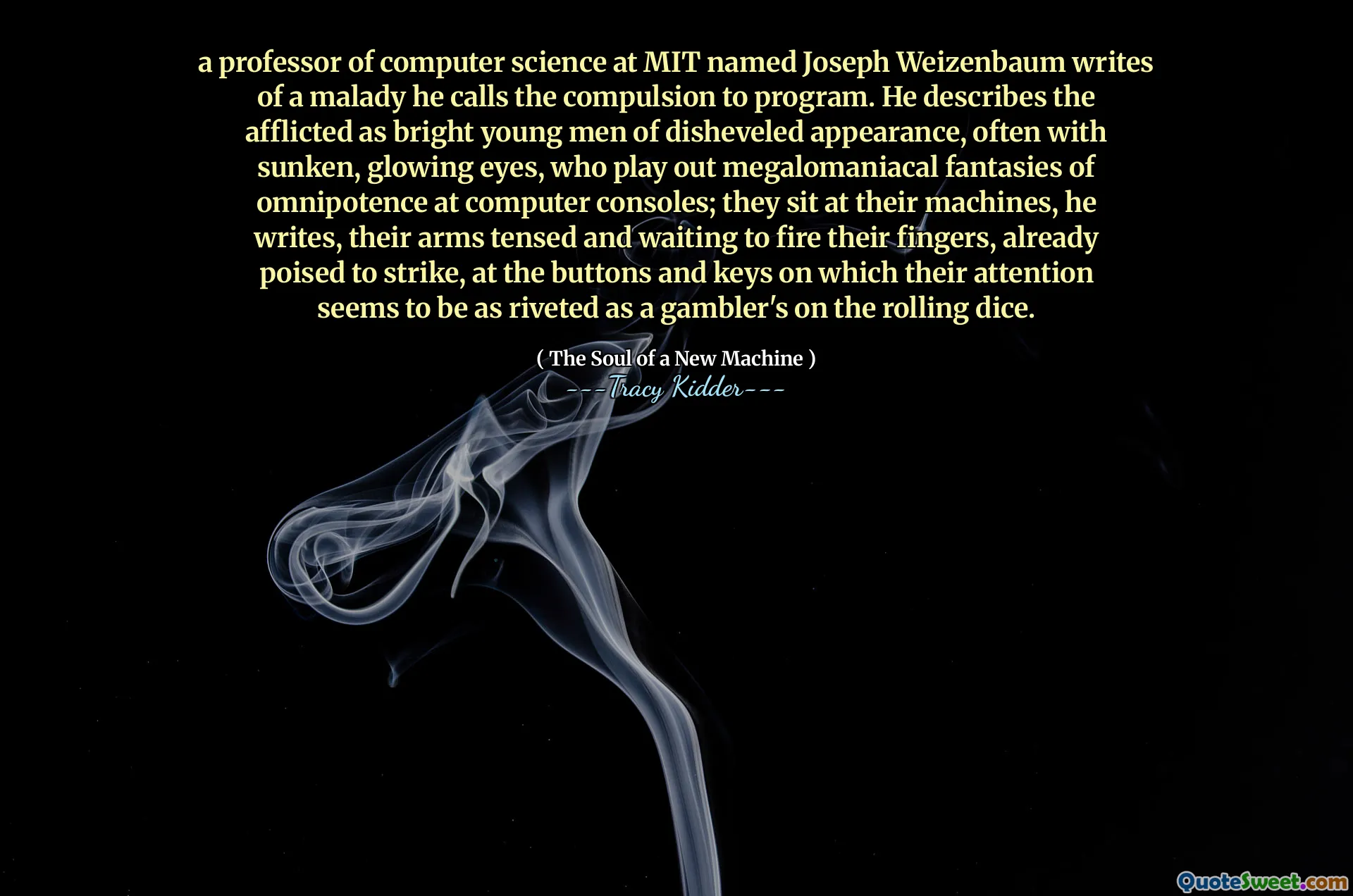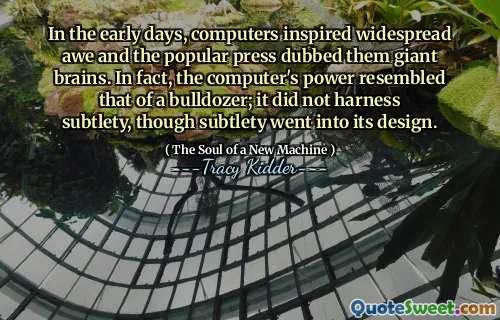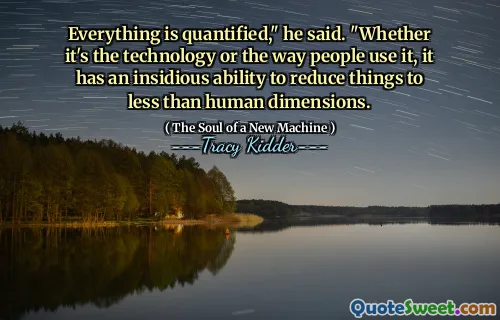
a professor of computer science at MIT named Joseph Weizenbaum writes of a malady he calls the compulsion to program. He describes the afflicted as bright young men of disheveled appearance, often with sunken, glowing eyes, who play out megalomaniacal fantasies of omnipotence at computer consoles; they sit at their machines, he writes, their arms tensed and waiting to fire their fingers, already poised to strike, at the buttons and keys on which their attention seems to be as riveted as a gambler's on the rolling dice.
In his reflections on the obsession with programming, MIT professor Joseph Weizenbaum characterizes those overcome by this urge as intelligent but disheveled individuals, often exhibiting physical signs of fatigue and fixation. He compares their intense focus on computers to a gambler’s concentration on dice, highlighting the almost compulsive nature of their engagement with technology. These programmers appear to harbor grandiose fantasies and a desire for power within the digital realm.
Weizenbaum's portrayal suggests that this fixation extends beyond mere technical skill; it becomes a profound psychological state. The imagery of programmers with tensed arms, ready to unleash their commands, evokes the sense that they are entrapped in a relentless cycle of ambition and desire for control over their machines, illuminating the intricate relationship between mankind and technology.











